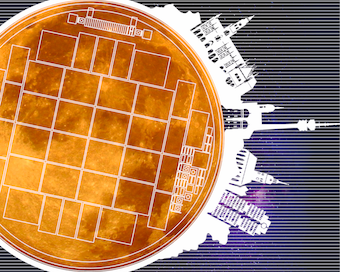Speaker
Description
An in-depth study of a p-in-p LGAD sensor (Inverse-LGAD) is presented. Contrary to the conventional LGAD, the baseline device for the HL-LHC mip timing detectors, the I-LGAD has a non-segmented deep p-well (the multiplication layer). Therefore, I-LGADs should ideally present a constant gain value over all the sensitive region of the device without gain drops between the signal collecting electrodes; in other words, I-LGADs should have a 100% fill factor by design. We have experimentally confirmed this feature on a strip-like segmented i-LGAD and compare it against a conventional strip-like LGAD and PIN devices. Tracking performance was determined with MIPs using the AIDA telescope at the SPS H6 test beam line. Finally, a timing resolution of tens of picoseconds was determined using a dedicated laser test-stand.
